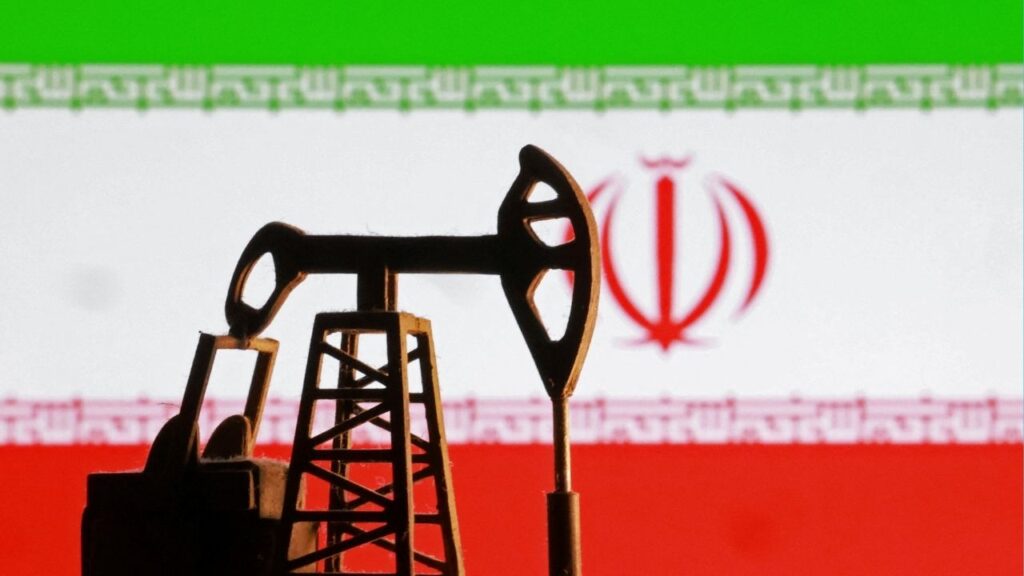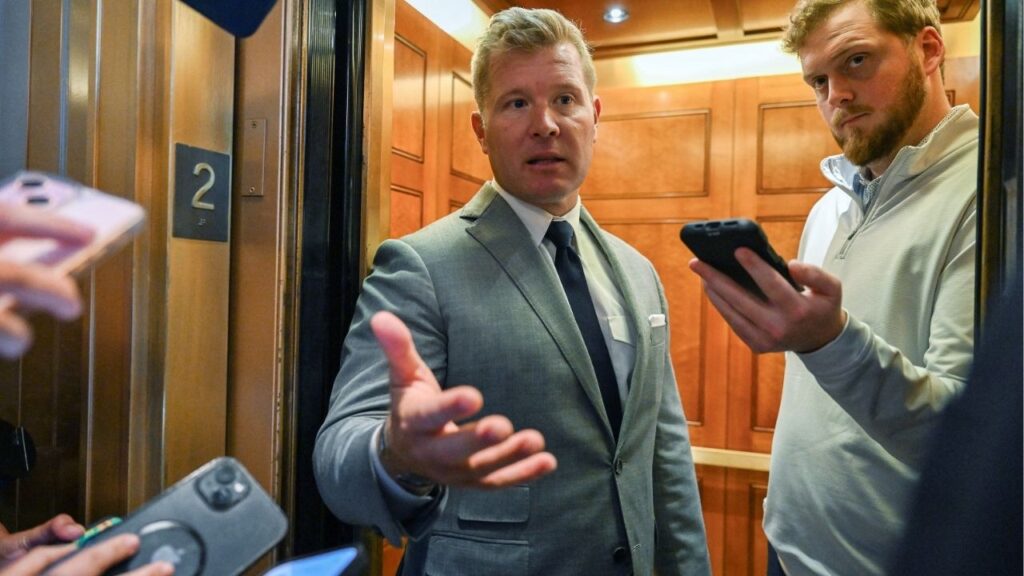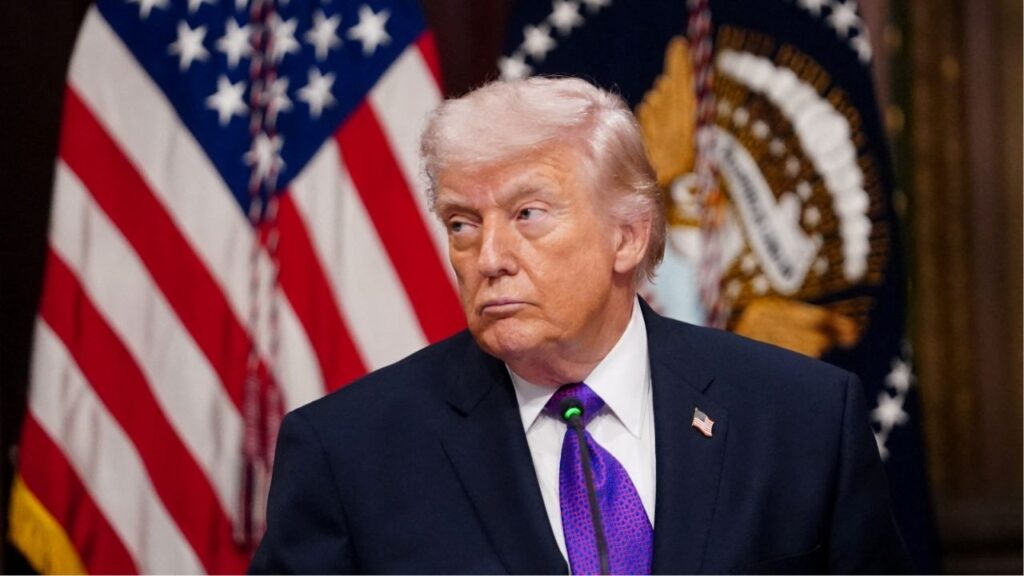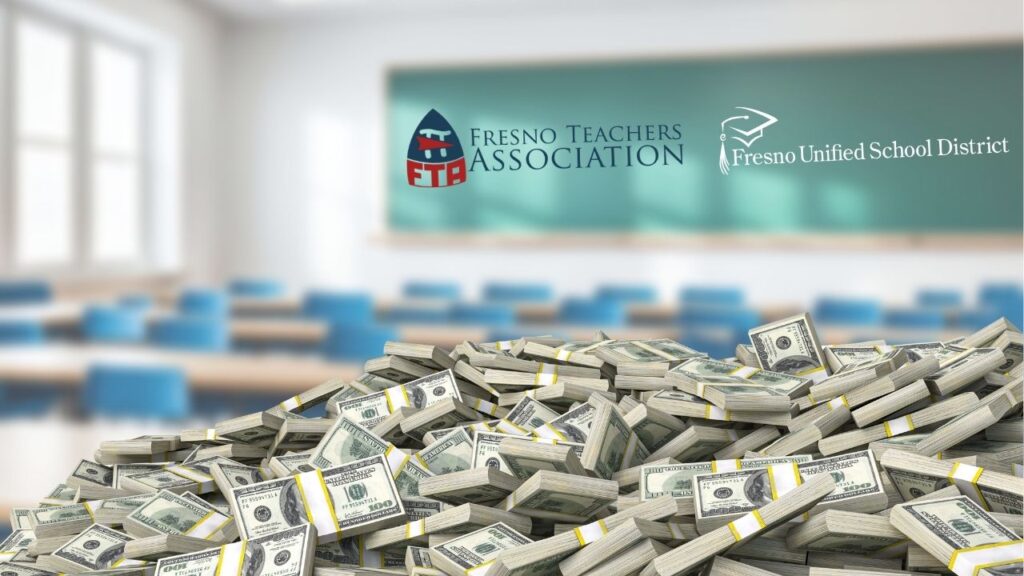Trump's tariffs aimed to boost U.S. manufacturing but led to higher prices; he now plans even higher tariffs if re-elected. (Haiyun Jiang/The New York Times)

- Trump imposed the largest U.S. tariffs since the Great Depression, triggering retaliatory tariffs on American goods.
- Tariffs reduced imports and boosted some U.S. manufacturing but raised consumer prices and had mixed effects on jobs.
- Running for president again, Trump plans even higher tariffs, raising concerns about potential recession and inflation.
Share
|
Getting your Trinity Audio player ready...
|
WASHINGTON — In March 2018, a day after announcing sweeping tariffs on metals imported from U.S. allies and adversaries alike, President Donald Trump took to social media to share one of his central economic philosophies: “Trade wars are good, and easy to win.”
As president, Trump presided over the biggest increase in U.S. tariffs since the Great Depression, hitting China, Canada, the European Union, Mexico, India and other governments with stiff levies. They hit back, imposing tariffs on American soybeans, whiskey, orange juice and motorcycles. U.S. agricultural exports plummeted, prompting Trump to send $23 billion to farmers to help offset losses.
Trump Promising to Ramp Up Trade War
Now, as he runs for president again, Trump is promising to ratchet up his trade war to a much greater degree. He has proposed “universal baseline tariffs on most foreign products,” including higher levies on certain countries that devalue their currency. In interviews, he has floated plans for a 10% tariff on most imports and a tariff of 60% or more on Chinese goods. He has also posited cutting the federal income tax and relying on tariffs for revenue instead.
Trump, who once proclaimed himself “Tariff Man,” has long argued that tariffs would boost American factories, end the gap between what America imported and what it exported and increase American jobs.
Related Story: If Trump Wins
His first round of levies hit more than $400 billion worth of imports, including steel, solar panels, washing machines and Chinese goods such as smartwatches, chemicals, bicycle helmets and motors. His rationale was that import taxes would revive American manufacturing, reduce reliance on foreign goods and allow U.S. companies to better compete against cheap products from China and other countries.
Economists say the tariffs did reduce imports and encouraged U.S. factory production for certain industries, including steel, semiconductors and computer equipment. But that came at a very high cost, one that most likely offset any overall gains. Studies show that the tariffs resulted in higher prices for American consumers and factories that depend on foreign inputs, and reduced U.S. exports for certain goods that were subject to retaliation.
Trump May Tax 10 Times as Many Imports
Trump is now envisioning taxing perhaps 10 times as many imports as he did during his first term, an approach that economists say could trigger a trade war that drives up already high prices and plunges the U.S. into a recession.
David Autor, an economics professor at the Massachusetts Institute of Technology, said the proposals would have “a very large effect on prices almost immediately.”
“I don’t think they’ll do it,” Autor said. “It could easily cause a recession.”
In a recent letter, 16 Nobel Prize-winning economists wrote that they were “deeply concerned” about the risks a second Trump administration posed to the economy, inflation and the rule of law.
“We believe that a second Trump term would have a negative impact on the U.S.’s economic standing in the world and a destabilizing effect on the U.S.’s domestic economy,” they wrote.
Related Story: AP-NORC Poll: Most Americans to Watch Biden-Trump Debate, Many View Stakes as ...
Trump and his supporters have a much more positive view of tariffs, arguing that they serve as leverage with foreign governments, reduce the trade deficit with China and result in the growth of U.S. manufacturing jobs.
“I happen to be a big believer in tariffs because I think tariffs give you two things: They give you economic gain, but they also give you political gain,” Trump said on a recent podcast.
Karoline Leavitt, the Trump campaign national press secretary, said in a statement that “the American people don’t need worthless out-of-touch Nobel Prize winners to tell them which president put more money in their pockets.”
“President Trump built the strongest economy in American history,” she said. “In just three years, Joe Biden’s out-of-control spending created the worst inflation crisis in generations.”
Trump’s Tariffs Have Domestic Support
Trump’s tariffs have domestic supporters among the industries that have benefited from them. And President Joe Biden gave them his own stamp of approval by choosing to keep Trump’s China tariffs in place while adding some of his own, including on electric cars, steel and semiconductors.
But some of the industries that were hit hardest by Trump’s trade wars are not looking forward to a sequel. Executives in sectors such as retail and spirits worry that another round of tariffs could reignite tensions, raise their costs and again close off critical markets abroad.
Spirit exports to Europe declined 20% after the European Union imposed a 25% retaliatory tariff on American whiskey in response to the Trump administration’s tariffs on steel and aluminum. And the China tariffs increased the prices that retailers had to pay for their products, forcing them to either raise prices for their customers or cut into their profits.
Related Story: Polls: Where Do Biden and Trump Stand Before the Debate?
“We need a trade policy, not just more tariffs,” said David French, executive vice president of government relations at the National Retail Federation. His group, which represents department stores, e-commerce sites and grocers, ran a television ad campaign opposing the Trump tariffs in 2018. “All they’ve done is add friction to the supply chain and cost consumers $220 billion.”
“Former President Trump looks at trade as some sort of zero-sum game — if you win, I lose and vice versa,” French said. “That’s really not the way trade works.”
The power of tariffs to help or hinder exports is clear in industries that eventually won a reprieve. In 2021, whiskey tariffs were temporarily suspended as part of a deal the Biden administration made with the EU. American whiskey exports to the bloc rose from $439 million in 2021 to $705 million last year.
One nonpartisan government study found that the tariffs on foreign steel and aluminum increased U.S. production of those metals by $2.2 billion in 2021. But American factories that use steel and aluminum to make other things, such as cars, tin cans and appliances, had to pay higher costs for their materials, and that reduced the output of those factories by $3.5 billion in the same year.
Studies suggest the tariffs also had a mixed record when it came to jobs. In a recent paper, Autor and other economists found that the cumulative effect of Trump’s trade policies and other countries’ retaliation was slightly negative for American jobs, or at best a wash.
In terms of inflation, studies have estimated that American households faced higher prices as a result of the tariffs — from several hundred dollars to more than $1,000 annually.
–
This article originally appeared in The New York Times.
By Ana Swanson and Alan Rappeport/Haiyun Jiang
c.2024 The New York Times Company
Distributed by The New York Times Licensing Group
RELATED TOPICS:
Categories
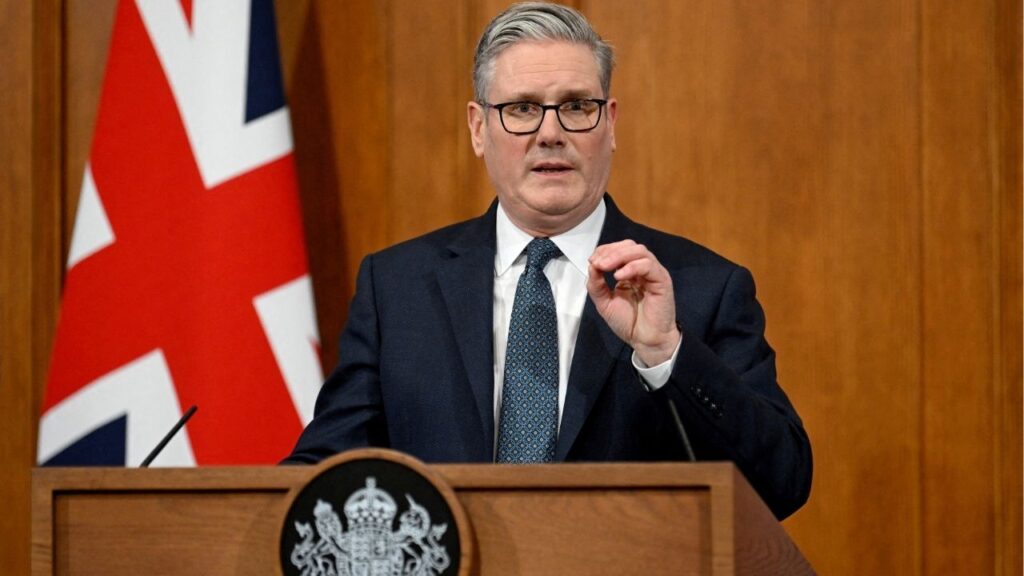
UK Says Drone Attack on Cyprus Base Not From Iran

Britney Spears Arrested for DUI, TMZ Reports
